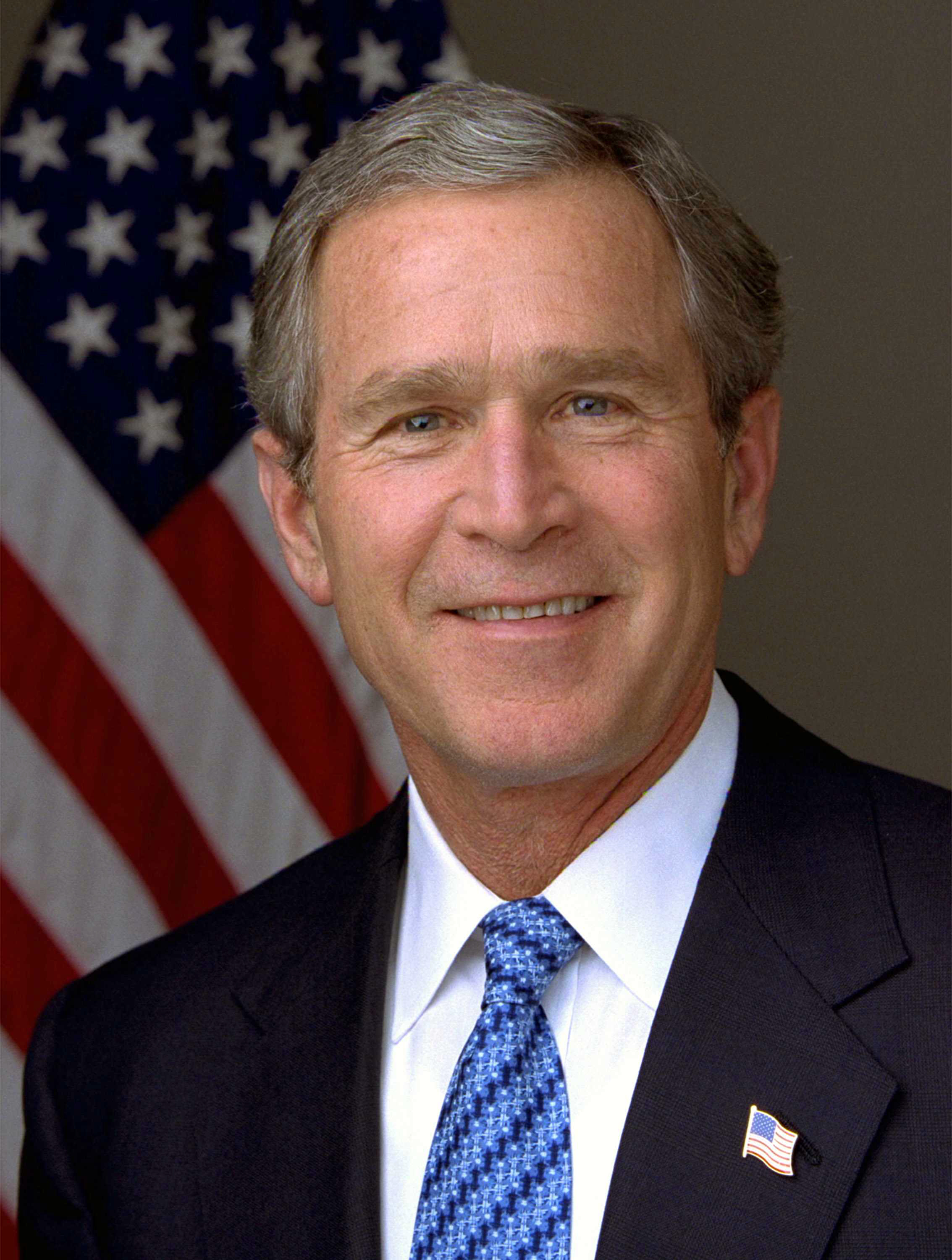
Presidency of George W. Bush
George W. Bush's tenure as the 43rd president of the United States began with his first inauguration on January 20, 2001, and ended on January 20, 2009. Bush, a Republican from Texas, took office following his narrow Electoral College victory over Democratic incumbent vice president Al Gore in the 2000 presidential election, in which he lost the popular vote to Gore by 543,895 votes. Four years later, in the 2004 presidential election, he narrowly defeated Democrat nominee John Kerry, to win re-election. Bush served two terms and was succeeded by Democrat Barack Obama, who won the 2008 presidential election. Bush is the eldest son of the 41st president, George H. W. Bush.
Not to be confused with that of his father, the Presidency of George H. W. Bush.Cabinet
A decisive event reshaping his administration was the terrorist attacks on September 11, 2001. In its aftermath, Congress created the United States Department of Homeland Security and Bush declared a global war on terrorism. He ordered an invasion of Afghanistan in an effort to overthrow the Taliban, destroy al-Qaeda, and capture Osama bin Laden. He also signed the controversial Patriot Act in order to authorize surveillance of suspected terrorists. In 2003, Bush ordered an invasion of Iraq, alleging that the Saddam Hussein regime possessed weapons of mass destruction. Intense criticism came when neither WMD stockpiles nor evidence of an operational relationship with al-Qaeda were found. Before 9/11, Bush had pushed through a $1.3 trillion tax cut program and the No Child Left Behind Act, a major education bill. He also pushed for socially conservative efforts, such as the Partial-Birth Abortion Ban Act and faith-based welfare initiatives. Also in 2003, he signed the Medicare Prescription Drug, Improvement, and Modernization Act, which created Medicare Part D.
During his second term, Bush reached multiple free trade agreements and successfully nominated John Roberts and Samuel Alito to the Supreme Court. He sought major changes to Social Security and immigration laws, but both efforts failed. The wars in Afghanistan and Iraq continued, and in 2007 he launched a surge of troops in Iraq. The Bush administration's response to Hurricane Katrina and the dismissal of U.S. attorneys controversy came under attack, with a drop in his approval ratings. A global meltdown in financial markets dominated his last days in office as policymakers looked to avert a major economic disaster, and he established the Troubled Asset Relief Program (TARP) to buy toxic assets from financial institutions.
At various points in his presidency, Bush was among both the most popular and unpopular presidents in U.S. history. He received the highest recorded approval ratings in the wake of the September 11 attacks, but also one of the lowest such ratings during the 2007–2008 financial crisis. Although public sentiment of Bush has improved since he left office, his presidency has generally been rated as well below-average by scholars.[1]
A 2009 C-SPAN survey of historians ranked Bush in 36th place among the 42 former presidents.[210] A 2017 C-SPAN poll of historians ranked Bush as the 33rd greatest president.[211] A 2018 poll of the American Political Science Association's Presidents and Executive Politics section ranked Bush as the 30th greatest president.[212] Historian Melvyn Leffler writes that the Bush administration's achievements in foreign policy "were outweighed by the administration's failure to achieve many of its most important goals."[213]
In summing up evaluations of Bush's presidency, Gary L. Gregg II writes:
Andrew Rudalevige has compiled a list of the 14 most important achievements under the Bush administration:[215]